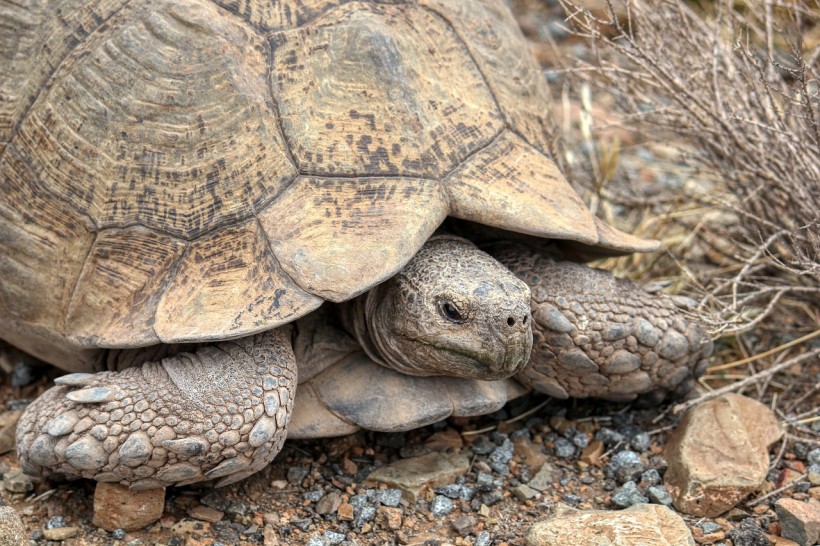Tortoises are hardy long-lived creatures that are quite easy to care for. Now, hundreds of friendly tortoises are seeking new homes after being unlawfully bred or abandoned.
Daily Mirror reports that the Arizona Game and Fish Department are presently putting almost 300 Sonoran Desert tortoises up for adoption. These tortoises are mostly captive, having been raised in captivity or by persons who are unable to care for them.

Want To Get a Tortoise for a Pet? Arizona Is Putting 300 Sonoran Desert Tortoises up for Adoption
Why Can't They Release the Tortoises Back to the Wild
Tortoises are known to be good house pets due to their small size, and personable and cuddly personalities. However, Desert Tortoise Adoption Program coordinator Tegan Wolf said that they are struggling to find homes for these reptiles.
Ms. Wolf said that the department has a record number of tortoises available for adoption this year because of illegal breeding. Nonetheless, she thinks these reptiles are fun-loving creatures who enjoy chin and head scratches.
She encouraged everyone interested in adopting a tortoise as a pet to do some research first before doing so. She noted that it is a lifetime commitment and they should be ready to learn more about this kind of reptile.
Tortoises, which grow to reach around 12 pounds, are low-maintenance pets that require little attention. Since they are non-swimmers, all that is required is the construction of a burrow and the provision of an enclosed yard with a fence.
Ms. Wolf noted that tortoises are great additions to any household and are highly friendly. Their food is simple, consisting of grass and natural plants, and a year's supply of Bermuda or Timothy Hay.
Every year, hundreds of captive desert tortoises are surrendered to the Department. Sadly, these tortoises cannot be allowed back into the wild because they can spread illnesses that will wipe out the natural population.
According to the organization, the adoption time begins in March and lasts until about October, depending on the weather, because they brumate during the cooler months.
Adoption applications are now being accepted. On their website, the agency said that these desert tortoises may be non-traditional pets but they are fascinating animals for which families can gain an appreciation by caring for and watching them in their natural behavior. The state law states that only Arizona residents can adopt desert tortoises and is limited to one desert tortoise per household.
READ ALSO: Tortoises Died In California While Attempting To Reproduce In The Harsh Situations
How To Care for a Tortoise
According to the website Avian and Exotic Animal Care, tortoises are not a pet that is something to be played with, cuddled, or handled often. They thrive best where there is sunshine and fresh air.
In taking care of them, it is important to know the specific necessities for each species. Although, there are general guidelines to know regardless of species. Here are some of them:
Diet
All tortoises seem to love brightly colored fruits and vegetables, so adding some could diversify their diet. Also, dark, leafy greens are the best for them. Some examples include kale, collards, mustard greens, dandelion, and romaine.
Experts also recommend adding veterinary powdered calcium supplements several times a week. Most importantly, always provide fresh food and water, especially adult tortoises as they can be fed daily.
Housing
Build an enclosure that mimics their natural environment and adjust it to fit the type of tortoise. Make sure it is not overly moist as it promotes fungal growth and affects their health.
Also, give them access to shallow water for soaking and drinking. The optimal temperature for an enclosure should be between 70-90°F (21-32°C). Ensure that it has a basking area and shade to allow regulation of body temperature.
Preventative Care
Make sure they receive a physical examination every six to 12 months and consult a veterinarian with experience in treating exotic pets. An annual fecal analysis is also necessary to test for parasites.
RELATED ARTICLE: Meet 190-Year-Old Jonathan the Oldest Living Tortoise and Other Old Land Animals on the Planet
Check out more news and information on Animals in Science Times.














